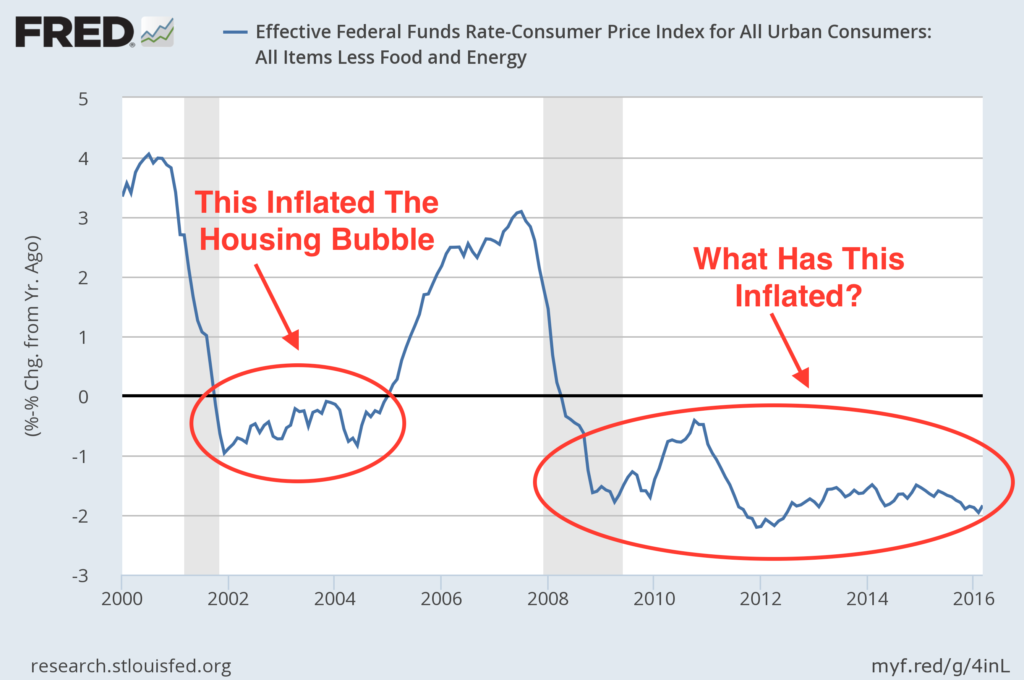
It’s Fed week once again and once again the group has decided to leave interest rates unchanged. This, despite the fact that, with core inflation running at just over 2% and jobless claims at their best levels of my lifetime, they have clearly met their dual mandate. In fact, they met these targets a long time ago. By any measure, the jobs market is very strong and, with core inflation rising, it’s hard to argue deflation poses any real threat whatsoever.
Remember when? pic.twitter.com/Rh8zQxhCPN
— Jesse Felder (@jessefelder) April 26, 2016
If their goals have been met, why has the Fed been so hesitant to abandon this emergency interest rate policy? I think it’s very simple. They are worried about spooking the markets and thus damaging the wealth effect they so aggressively and explicitly targeted over the past seven years.
The bigger (rhetorical) question, however, is this: In maintaining emergency policy for so long, what hath the Fed wrought? It only took a couple of years of emergency-level interest rates to inflate the housing bubble. After seven years (and counting) of emergency-level rates what hidden (or not so hidden) risks or mispricings driven by malinvestment have accrued this time?
Related:
The Greatest Money Manager Alive Attributes The Majority Of His Success To Just This One Thing